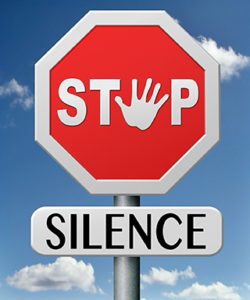Where Do You Stand?—Samantha Nelson
 Harvey Weinstein, Bill O’Reilly, Roy Moore, Bill Clinton, George Takei, Larry Nassar, Bill Cosby, Kevin Spacey…the list of perpetrators and alleged sexual abusers mentioned in the news lately appears endless. This list spans from Hollywood to the White House and the U.S. Congress and every place in between, covering politics, news media, the entertainment industry, sports and more. Truly, no place is immune from abuse—not even the church. Perhaps especially not the church.
Harvey Weinstein, Bill O’Reilly, Roy Moore, Bill Clinton, George Takei, Larry Nassar, Bill Cosby, Kevin Spacey…the list of perpetrators and alleged sexual abusers mentioned in the news lately appears endless. This list spans from Hollywood to the White House and the U.S. Congress and every place in between, covering politics, news media, the entertainment industry, sports and more. Truly, no place is immune from abuse—not even the church. Perhaps especially not the church.
Why would I say such a thing? Shouldn’t the church be the safest place of all? Yes, it should be—but it often is not. Like all of the names mentioned above, church leaders (pastors, elders, deacons, teachers, etc.) are in positions of power and authority—spiritual authority. They have an inherent fiduciary trust—a responsibility to protect, watch over and help those under their care and leading. They are never to abuse or misuse that sacred privilege. Yet, it happens, and far too often.
What does the church have in common with the world when it comes to sexual assault and abuse? Enabling, Collusion, Cover-Up, Victim Shaming and Blaming…
Look what happened when victims spoke out, some after decades of silence, in the above-mentioned cases—they were called liars, money-grabbers, seducers of powerful men. News reports revealed common lines of thought and questioning:
Why didn’t she say “no”?
Why did she wait so long to report?
This must be politically motivated to keep him out of office.
She must have seduced him. She wanted it.
He’s a good man; he’d never do such a thing.
And many more ignorant remarks that tend to make my blood boil! Why aren’t we asking the following instead of victim shaming and blaming?
Why did he touch her when she said “no”?
Why did he drug her to have sex with her when she didn’t want to do so?
Why didn’t those who knew what was happening do something? Why did they turn a blind eye and allow it to continue?
Why isn’t he being held accountable for his actions?
Why aren’t more people enraged that those in power, even among our congregations and schools, are abusing that power to take advantage of those under their care and leadership?
These are the questions we should be asking. Don’t be part of enabling an abuser. Don’t cover for one. Don’t partake of their sins.
We know where God stands on the issue of abuse. “But whoso shall offend one of these little ones which believe in me, it were better for him that a millstone were hanged about his neck, and that he were drowned in the depth of the sea.” (Matthew 18:6)
Where do you stand?
